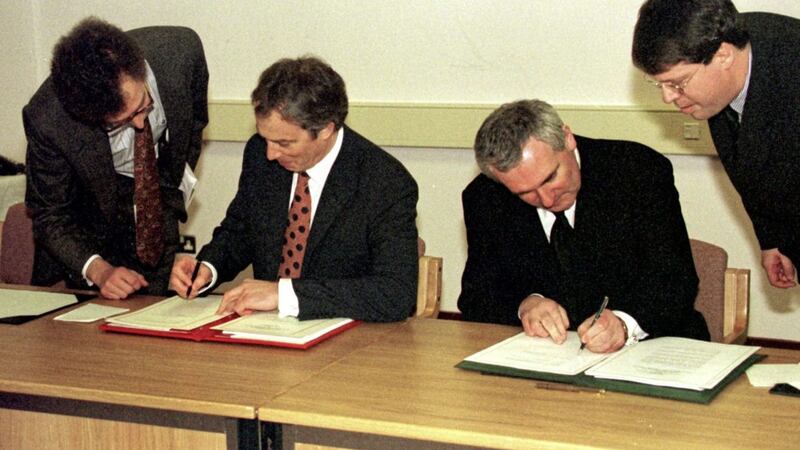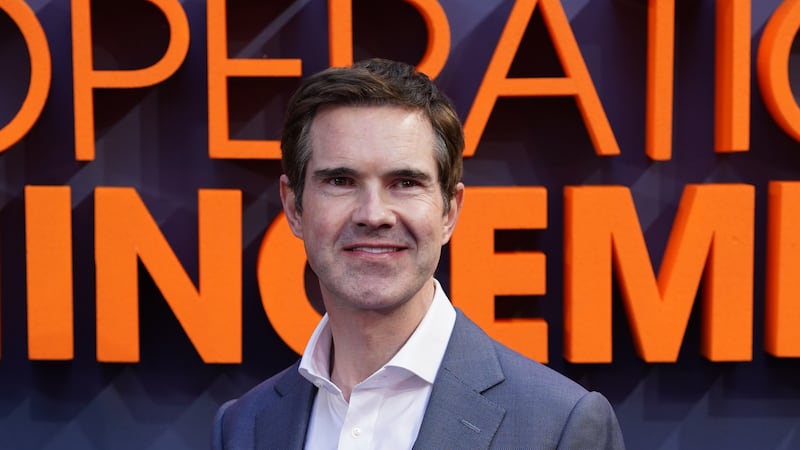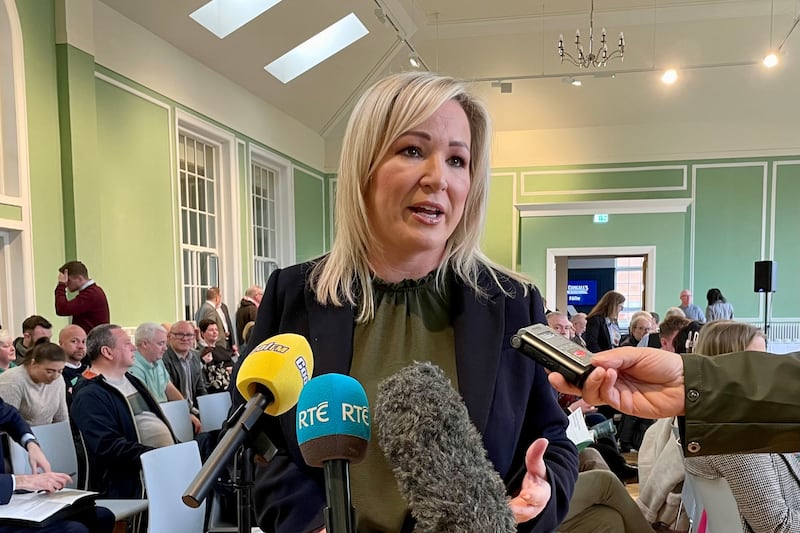AS we mark the 20th anniversary of the Belfast Agreement, which was finalised on Good Friday 1998, we need to first celebrate the fact that Northern Ireland is a much more peaceful place than it was in preceding decades.
We must never lose sight of this, nor ever take it for granted. We also want to celebrate the key principles which were enshrined in the Agreement.
In particular the principles of consent and of mutual respect for the identities and history of the various traditions in Northern Ireland.
We further want to celebrate the courage, hope and commitment to reconciliation that was displayed by many people 20 years ago.
Nevertheless, without losing sight of all that there is to celebrate, we also must recognise that for many the overriding feelings at present are those of hopelessness and powerlessness.
It could be said that there is less active engagement towards reconciliation than there was 20 years ago
We also must admit that respect is not always shown to each other in our society.
Indeed, it could be said that there is in fact less active engagement towards reconciliation at every level of our society than there was 20 years ago.
In the context of having much to celebrate but also much to lament, what can we do now?
In answer to that question the Methodist Church in Ireland calls us all to three key challenges:
1.The first challenge to every single citizen and leader in our society is to make a point of seeking out someone who you know you will disagree with, and to take time to just get to know them.
The aim need not be to come to agreement but rather to get to know the person with whom you disagree.
A segregated community where we only know people with whom we agree will never really be a place of peace.
2. Our second challenge is to politicians at every level. All of the political parties affirm that they want the best for all the people of Northern Ireland.
We would urge politicians to unite around working to fulfil their mutual desire for the betterment of life of all the people.
Even as different views of sovereignty persist, we call on our leaders to work together in addressing crucial issues such as hospital waiting lists, resources to education and legacy matters.
In dealing with the latter, our primary concern should be the welfare of victims and their dependents.
Whatever ideological differences might persist, we call on our leaders to forge ahead together to address these issues which affect all of the citizens of our land.
3. Thirdly, we invite everyone - citizens of Northern Ireland and the Republic of Ireland, politicians, governments and Churches - to redouble efforts to strengthen relationships by engaging in genuine dialogue, real listening and constructive engagement.
In these days of uncertainty, which can so easily lead to deep-seated fears rising up, there is an increasing need for us all to be proactive in seeking mutual understanding.
Instead of slipping further apart let us all make a conscious decision to take active steps towards rebuilding trust and generating respect.
It was active, brave steps towards real engagement which generated the Good Friday Agreement and we call everyone to be courageous and proactive in building trust, respect and ultimately reconciliation.
We need to stop using the word reconciliation as a noun but start living it as a verb.
- The Rev Dr Laurence Graham is President of the Methodist Church in Ireland.







